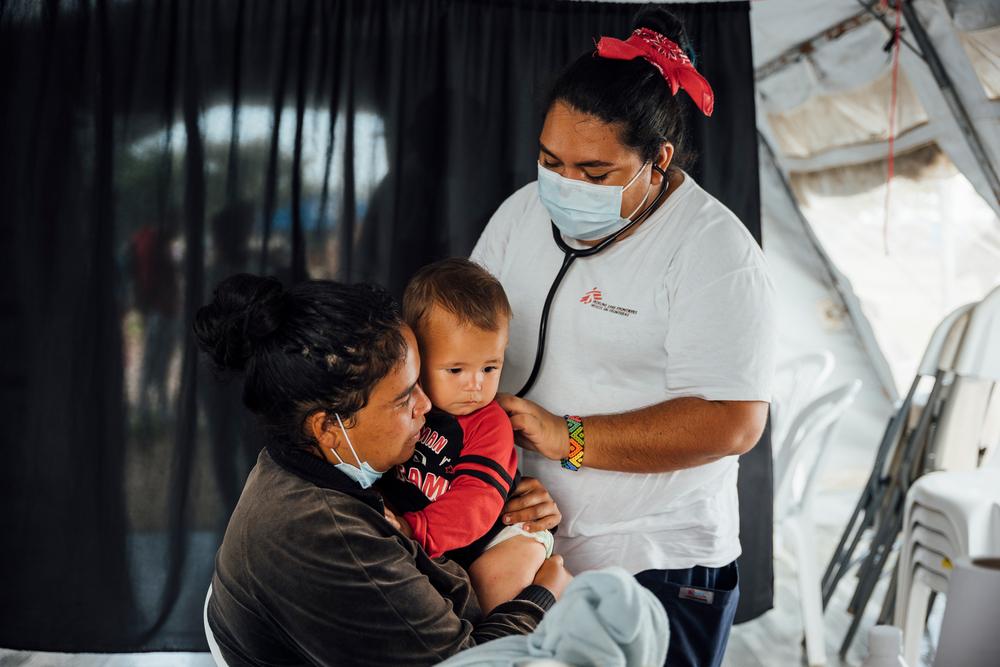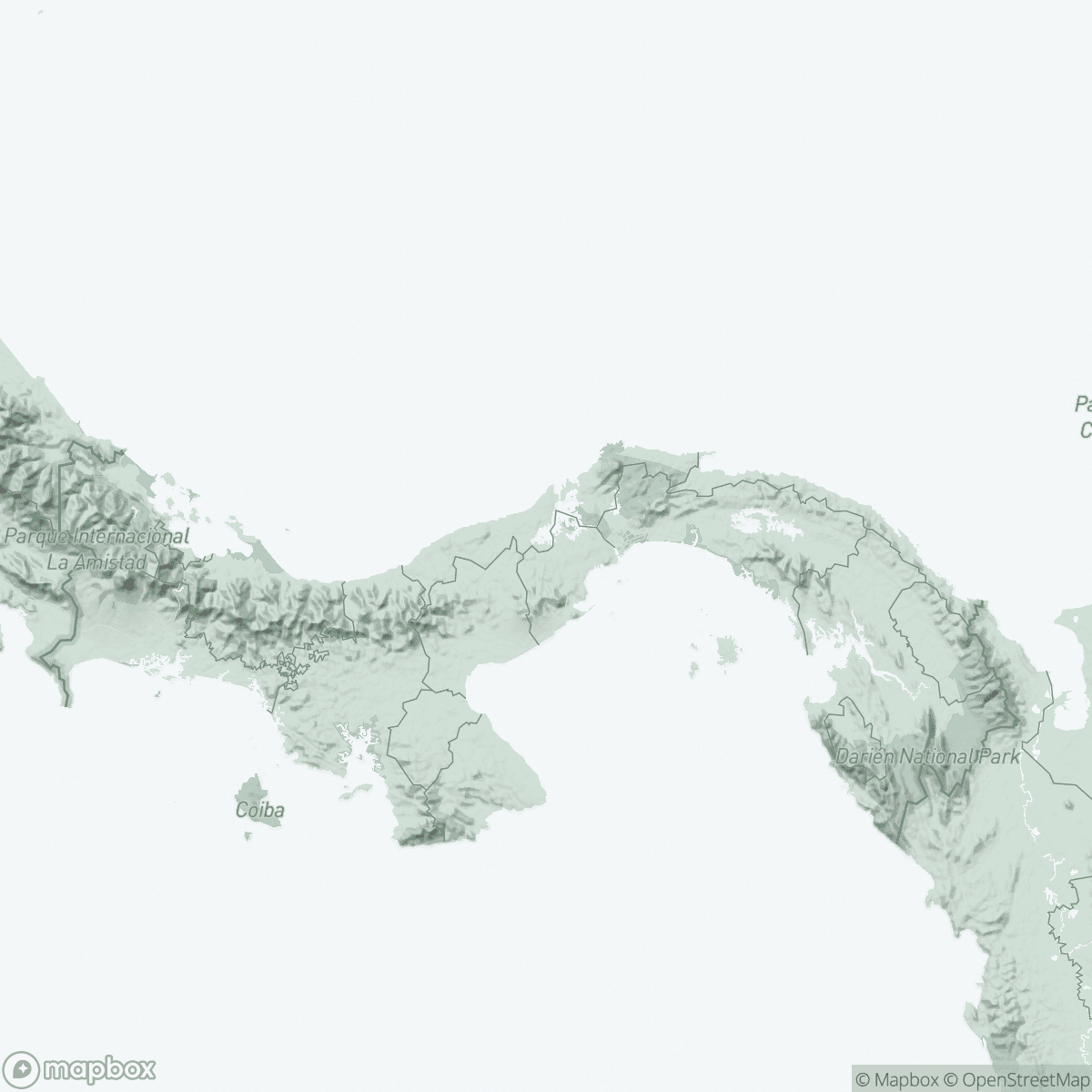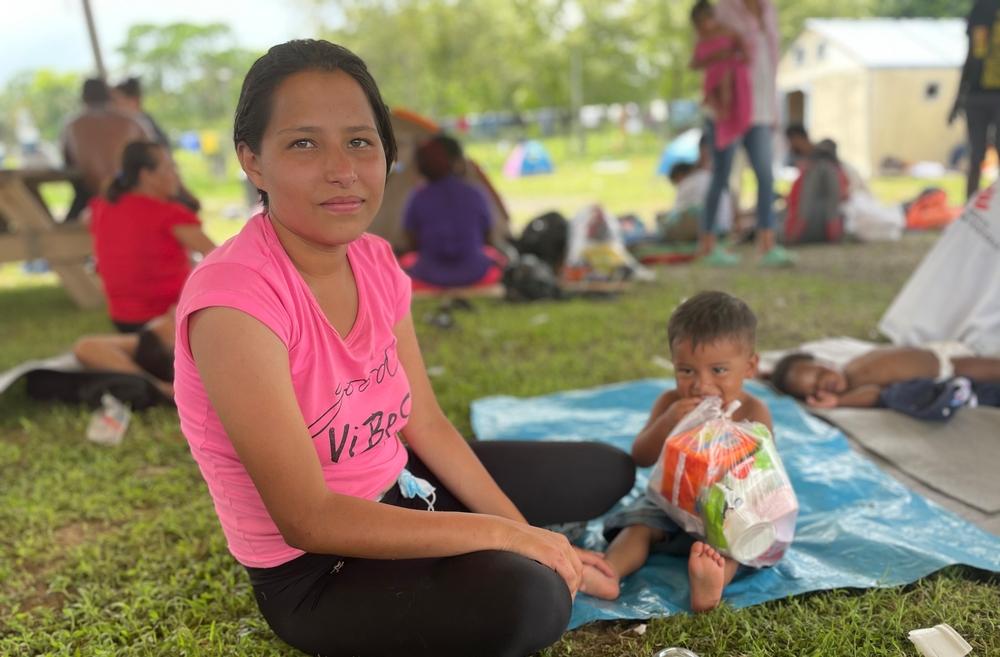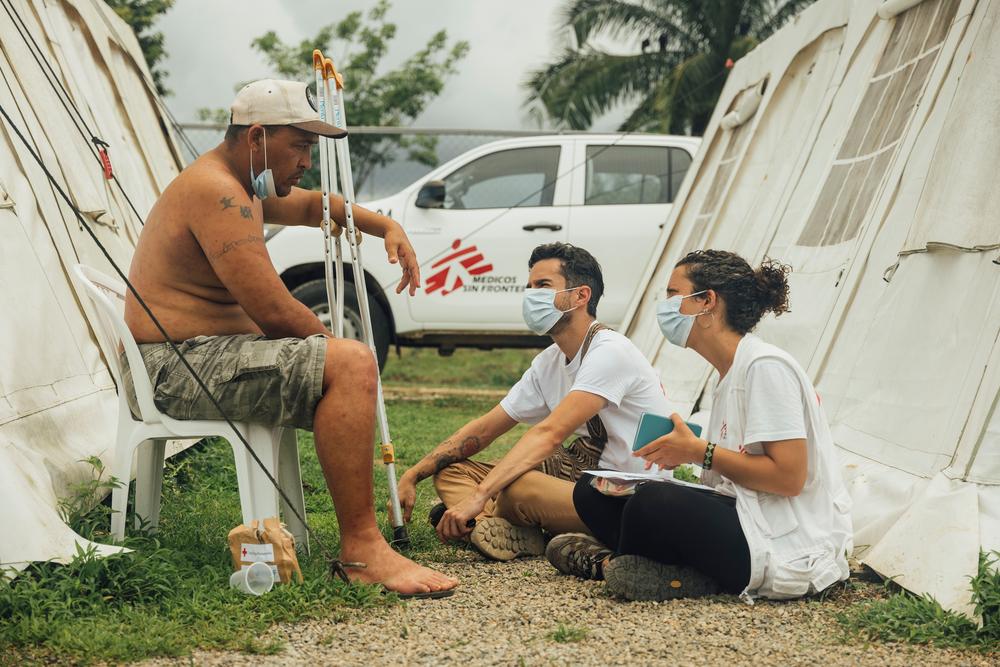
“We are tired and desperate”: Stories from families who survived the Darién Gap
In 1 click, help us spread this information :
Three families sit on the grass of the San Vicente migrant reception centre in the Darién province of Panama, waiting for a tent to vacate so they have somewhere to sleep that night. They are more than 1,000 kilometres from home and travelled here by bus and on foot. They told Médecins Sans Frontières (MSF) staff they left their country to survive.
The reception center usually hosts between 300 and 900 people all planning to travel north to the US. Costa Rica is their next stop. More people arrive daily after crossing the Darién Gap–a treacherous stretch of jungle that separates Panama and Colombia. In 2021, 134,000 migrants passed through this dangerous border region, 62 percent of whom were from Haiti, 14 percent from Cuba, 2 percent from Venezuela, and about 3 percent were from various countries in Africa, including Senegal, Ghana, and Cameroon.
This year has seen a shift in the nationality of migrants making the crossing: Of 19,000 people who crossed between January and April, 6,951 came from Venezuela, 2,195 from Haiti, 1,579 from Cuba, and 1,355 from Senegal.
Many migrants cite the economic consequences of the COVID-19 pandemic as a reason for their departure, as well as discrimination that has prevented them from earning enough money to survive or finding appropriate accommodation.
To reach Panama from Colombia, migrants have two options. The first option is to pay $400 US to take a boat from Capurganá, Colombia, to Carreto, Panama, and then walk through the jungle for two or three days. Alternatively, if they cannot afford the cost, they can take the less expensive but more dangerous route, walking from Capurganá to the Panamanian indigenous community of Canáan Membrillo—a journey that can take between seven and 10 days and where hundreds of people have reported robberies, assaults, and sexual violence.
MSF has treated 100 cases of sexual violence at the San Vicente centre from January to May 2022. In 2021, our teams carried out 328 consultations for sexual violence.
“That jungle is hell”
Yuleidy Peña is 20 years old. On April 19, 2019, she remembers clearly, she left her home in Venezuela and travelled to Ipiales, Colombia, looking for a job to survive.
“I spent two years working in a restaurant with my husband and sending money to Venezuela,” she said. “In Ipiales I had a baby, who is now one year old. Unfortunately, the situation became complicated because they no longer wanted Venezuelans—they wouldn't rent to us, they wouldn't let us work—so we decided to cross to Panama and try to get to the US.”
With her baby strapped to her chest, Peña and her husband crossed the Darién Gap. It took them seven days. Going by boat to Carreto was not an option, as they did not have $800 US to pay for the tickets. So, they had to walk.
“I did not think it would be so hard,” said Peña. “In the jungle, we ran out of food, and at night we slept in fear on the banks of the river because there were so many animals. In the daytime, the fear was about other things: One woman in the group was about to be raped by some men, but fortunately, the group fought back and didn't allow it.
The hardest thing for me was when my husband fell with our baby, trying to walk across some very big rocks.
"The baby was crying a lot. We decided to walk without stopping to see if we could find someone to look after him because we thought his ribs were broken.”
When they arrived in the Panamanian community of Canaán Mebrillo, Peña had a fever and her son wouldn't stop crying. There was no medical post nearby, so they were taken by Senafront—the Panamanian national border police—on the first boat to the San Vicente reception center.
“We were then transferred to the hospital in Metetí where they did tests. It seems that my haemoglobin was low because of the many blows I took in the jungle and not eating for four days. On the way, after running out of food, we only drank river water. To eat coconut in a village, for example, we had to clean or pay $5 US. Now, to go on to Costa Rica, we need $40 US per person, which we don't have. In the meantime, we are living here with my sick baby.”
Sleeping in the tent next to Peña’s is José Méndez, a 25-year-old man from Venezuela, who is travelling with his wife and 1-year-old son. The three of them have been in the San Vicente center for 19 days. They have not been able to leave because the baby has not been registered.
“In Ecuador, they denied us nationality because we didn't have papers, so they only gave us a certificate of live birth. So, they won't let us continue on to Costa Rica. We have to do a DNA test and then [try and] register him.”
Méndez left with his wife, Yanleidis, from Maracay, Venezuela, to look for work in another country. Now, they say, they feel like they are “trapped”, as they cannot leave the reception centre until the DNA test has been done and approved by a judge.
“Not being able to work, not being able to have a place to sleep and some privacy is really infuriating,” said Méndez. “We do what we can, but we are tired and desperate.”
“They took everything from us”
At the end of April 2022, Hernán Betancourt, 27, and Mariana Tablante, 21, left Miranda, Venezuela, for the United States. It took the couple one year to save $87 US to make the journey. They knew the money was not enough, “but I couldn't go on living there,” said Betancourt.
My mother needed insulin, and she didn't have any. We were going to bed hungry, and we have a 1-year-old baby—we couldn't carry on like that. We felt suffocated, really suffocated.”
The family travelled on pack mules and by foot. When they arrived at the port of Necoclí in Colombia, they discovered that to take the safest route by boat, they had to pay $800 US, which they did not have. They paid a guide most of the money they had saved, bought a little food, milk and nappies, and set off through the jungle.
“The jungle is not easy,” said Tablante. “The first day, we saw a dead woman, and they told us that she had apparently died from a snake bite. That same day, after four hours of walking, the guides left the group, and some hooded armed men arrived and took us to a cave. There they made us take off all our clothes, touched our bodies and robbed us. They wanted to take a young girl to rape her, but she cried so much and screamed so loudly that in the end, they didn't do it. Thank God.”
After this robbery, all the family was left with was some diapers, a can of powdered milk and a bottle. “We found a piece of chocolate in the bag and gave it to our little girl,” said Betancourt. “We drank a lot of river water and often fell because the ground was very wet and muddy. My wife and daughter slept on the riverbank while I kept watch to protect against someone stealing from us or animals.”
When they reached the top of a mountain known as “Banderas” (Spanish for flags), a group of four hooded people intercepted them. “We were already on the final stretch,” said Betancourt. “They saw my wife was feeding the baby, and they took out a shotgun and a machete and took everything from us: the baby's milk, the bottle and the nappies. We had to walk for two days without stopping, with the baby crying for food, tired, with a headache. Going up and down those mountains with the baby suffering were the most difficult days of all.”
At the San Vicente reception centre, the family is doing jobs, such as cleaning, so that they will be allowed to leave by bus, as they do not have the $80 US they need to reach Costa Rica.



